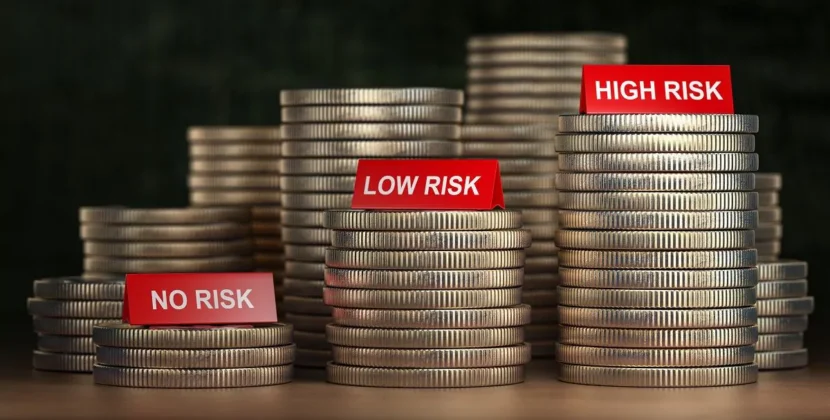
In the world of event management, having a solid strategy is key to ensuring the success of your meetings and events program.
Whether your events are in-person, virtual, or hybrid, a well-thought-out event strategy serves as a roadmap that guides every decision, from the initial planning stages to measuring event success.
With the right strategy, you can align your events with broader organizational goals, create meaningful attendee experiences, and drive measurable results.
In this article, we will dive into the intricacies of event strategy, providing practical advice on how to build one that supports your business objectives, maximizes ROI, and ensures that each event serves its intended purpose.
Whether you are an experienced event planner or just starting, understanding the fundamentals of event strategy can make all the difference in the success of your event program.
What Is an Event Strategy?
At its core, event strategy is the deliberate planning and management of all aspects of your event program with the intent of aligning with your company’s overall goals and objectives.
It involves creating a structured approach to your meetings and events, ensuring that each one is not only relevant but also contributes to measurable outcomes.
An effective event strategy should include the following key elements:
- Purpose and Goals: Every event should have a clear objective that aligns with your broader business strategy. This could be anything from generating leads and boosting brand awareness to educating your audience or strengthening relationships.
- Event Type Selection: Understanding which event format (in-person, virtual, or hybrid) best suits your objectives is crucial. Each format has unique strengths, and your choice should be guided by the goals you wish to achieve.
- KPIs and Success Metrics: Establishing key performance indicators (KPIs) helps you measure the success of your events. These could include attendance numbers, engagement levels, revenue generated, or lead conversion rates.
- Budget Management: A well-managed budget is critical. Your event strategy should outline how you will allocate resources, manage costs, and ensure that each event delivers a return on investment (ROI).
Why Event Strategy Matters
Without a clear strategy, events can become disorganized, inefficient, and fail to meet their objectives.
Planning an event can easily become overwhelming, especially if you’re handling multiple events of varying types and sizes.
That’s where an event strategy comes in—it offers a clear framework to follow, helping you avoid unnecessary stress and ensuring that all team members are aligned with the event’s purpose.
Furthermore, having a robust event strategy enables you to:
- Achieve Consistency Across Events: Whether you’re hosting a small workshop or a large conference, a consistent strategy ensures that your events follow a coherent structure, making them easier to manage.
- Optimize Event Performance: By focusing on strategic goals, you can identify which elements of your events are working well and which need improvement. This helps you continuously optimize your event program.
- Maximize ROI: A focused event strategy allows you to track spending more effectively and ensure that your events deliver the best possible return on investment, whether through direct revenue, leads, or brand exposure.
The Event Strategy Plan
An event strategy plan serves as your roadmap for the year or quarter ahead.
It should reflect the goals of your organization and the specific event objectives you aim to achieve.
The plan should cover all types of events, including in-person, virtual, and hybrid formats, and ensure that each event type contributes to the broader business strategy.
Here are some key components of a solid event strategy plan:
- Business and Organizational Goals Alignment: Your event strategy must be tightly aligned with your company’s broader goals. Whether you’re aiming to increase revenue, enhance brand visibility, or improve customer retention, your events should be designed to achieve those outcomes.
- Event Types and Formats: Choose the right format for each event. For example, a trade show may work best in person, while a virtual training session might be better suited for an online format.
- Event Calendar: Organizing your event calendar is crucial. Make sure you account for the timing of events based on industry trends, competitor events, and other factors such as weather and attendee availability. A well-timed event can significantly boost attendance and engagement.
- Resource Management: Ensure that your team has the necessary resources—staff, budget, and tools—to execute the event successfully. Lack of resources can lead to poor execution, which ultimately impacts the event’s success.
- Technology and Event Management Tools: Leverage technology to streamline event planning and management. Event management software can help automate registration, track engagement, and measure event performance.
Event Strategy Template
A well-designed event strategy template is an invaluable tool for keeping your planning organized and ensuring consistency across multiple events.
The template should be structured in a way that aligns with how your organization works—whether that’s in a detailed document format or as a presentation slide deck.
Key areas to cover in your event strategy template include:
- Business Goals: What are your organization’s primary goals for the year, and how can your events support them?
- Event Purpose: For each event, define the core objectives. Is it to generate leads, build brand awareness, educate, or foster relationships?
- Event Type and Format: Determine whether the event will be in-person, virtual, or hybrid.
- Resources and Budget: Outline the resources you will need, including budget, personnel, and tools, and how these will be allocated across your events.
- Event Metrics: Define how you will measure success for each event type using KPIs such as attendance, engagement, revenue, or satisfaction scores.
Defining Event Purpose and Goals
Every event must have a clear purpose that ties into your broader event strategy.
Whether it’s networking, lead generation, team building, or training, the purpose of each event should be clearly articulated.
- Event Objectives: Event objectives should be specific, measurable, and achievable. This could include quantifiable outcomes like the number of leads generated, the amount of revenue generated, or the number of social media mentions.
- Event Purpose Statement: A clear purpose statement for each event helps you articulate its importance and align your efforts. This statement should include the target audience, the rationale for the event, and the expected outcomes.
Aligning Company Goals with Event Strategy
To achieve success with your event strategy, you must align your event goals with the overarching goals of your organization.
For example, if your company’s goal is to increase revenue, your events should focus on opportunities that drive sales or lead generation.
Here’s how different event types can align with specific business objectives:
- Grow Revenue: Host trade shows or product launches where potential buyers can interact with your offerings.
- Build Brand: Organize thought leadership conferences or webinars to enhance your brand’s authority in your industry.
- Decrease Turnover: Hold internal team-building events or employee recognition ceremonies to foster loyalty and satisfaction.
- Educate Clients: Conduct virtual training sessions to help clients understand your products or services better.
Measuring Event Success and ROI
Event success is measured in many ways, and understanding the return on investment (ROI) is critical.
ROI is not just about tracking ticket sales and registration fees—it involves looking at both direct and indirect costs and how these relate to the overall event goals.
- Direct Costs: These include tangible expenses such as venue rental, catering, technology, and marketing.
- Indirect Costs: These are often harder to measure but can include the time spent by employees, the opportunity costs, and shared resources like IT support.
In addition to financial considerations, ROI can also be measured by tracking KPIs such as:
- Attendee Engagement: How engaged were your attendees? Did they interact with the event’s content and features?
- Lead Generation: How many leads were captured, and how many turned into sales?
- Brand Awareness: Did the event increase awareness of your brand, as evidenced by social media shares, mentions, and press coverage?
Leveraging Technology for Event Management
Event management technology is a game-changer.
Using the right software tools can help streamline every aspect of event planning, from registration to post-event analysis.
Platforms like Cvent provide comprehensive solutions that allow planners to manage multiple events, track engagement, and collect data on attendee behavior and feedback.
Key tools to consider include:
- Event Registration Platforms: These automate the registration process, saving time and reducing errors.
- Mobile Event Apps: These enhance attendee engagement by providing a central hub for event schedules, networking, and personalized agendas.
- Analytics and Reporting Tools: These allow you to track key metrics in real time and make data-driven decisions.
Final Thoughts
Building a successful event strategy requires time, planning, and continuous refinement.
By understanding your business goals, selecting the right event formats, setting clear objectives, and leveraging technology, you can create an event program that not only meets but exceeds your expectations.
Strategic event planning is more than just a checklist—it’s an ongoing process that evolves to meet changing needs, technologies, and market trends.
Ultimately, a well-executed event strategy can drive business results, improve brand perception, and create lasting connections with your audience.
Start by assessing your past events, setting clear goals, and leveraging the best tools to ensure your next event is a resounding success.












